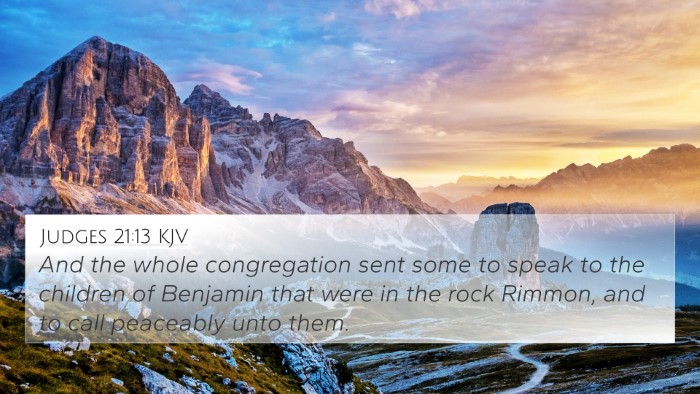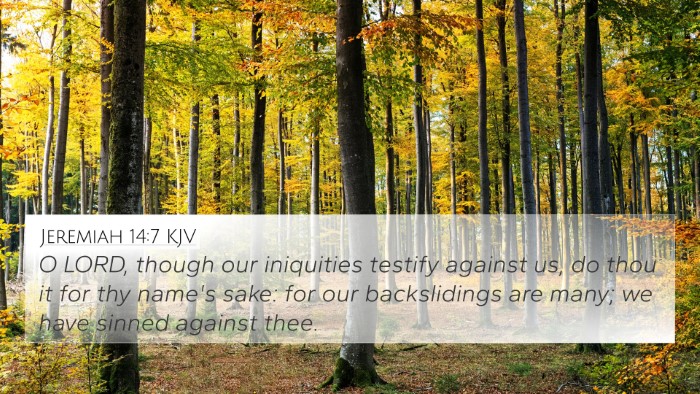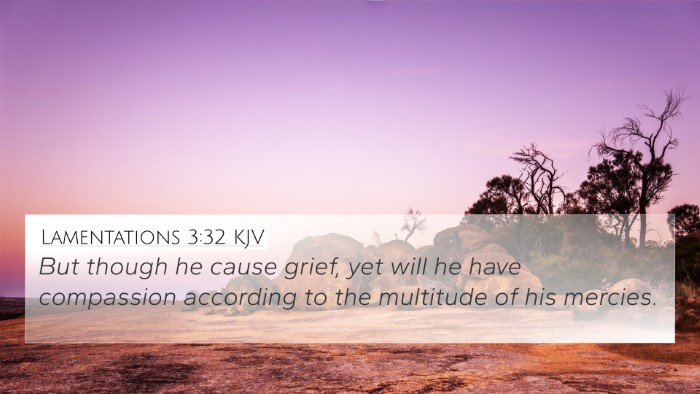Understanding Judges 20:47
The verse Judges 20:47 states: “But six hundred men turned and fled into the wilderness unto the rock Rimmon; and abode in the rock Rimmon four months.” This passage comes at the conclusion of a tragic civil war among the tribes of Israel, leading to significant loss of life and the near destruction of the tribe of Benjamin.
Verse Summary
The context of this verse describes the aftermath of a fierce conflict where the tribe of Benjamin was significantly outnumbered and faced almost complete annihilation. The remaining six hundred men of Benjamin fled to the rock Rimmon for refuge, representing a desperate attempt to save themselves from total destruction.
Commentary Insights
-
Matthew Henry's Commentary:
Matthew Henry emphasizes the dire circumstance of the Benjamites, noting that their flight to the rock Rimmon symbolizes their isolation and the severity of their situation. He comments on the importance of the rock as a place of safety during perilous times, drawing parallels to the refuge that God offers His people in times of distress.
-
Albert Barnes' Notes:
Barnes provides insights into the civil discord among the tribes and highlights the implications of this conflict. He remarks upon how these six hundred men, though physically saved by their retreat, represent a moral and spiritual decline within Israel. Their choice to flee instead of seeking reconciliation with their fellow Israelites reflects the tragic outcome of civil strife.
-
Adam Clarke's Commentary:
Clarke delves into the geographical significance of the rock Rimmon and suggests that it serves as a divine sanctuary for the remaining men of Benjamin. He also discusses the impact of their circumstances on the future of the tribe and Israel as a whole, noting the persistent theme of survival amid chaos and the potential for redemption.
Thematic Connections
This verse highlights themes of survival, isolation, and the consequences of conflict. The rock Rimmon serves as a metaphor for a refuge, drawing connections to other scriptural references that denote God as a fortress and rock for His people.
Related Bible Cross-References
- Psalm 18:2: "The LORD is my rock, and my fortress, and my deliverer." - Illustrates God as a refuge.
- 1 Samuel 14:2: "And Saul tarried in the uttermost part of Gibeah under a pomegranate tree." - Reflecting on the positions of Israel in battle.
- Deuteronomy 33:29: "Happy art thou, O Israel: who is like unto thee, O people saved by the LORD." - Recognition of Israel’s special status with God.
- 2 Corinthians 5:17: "Therefore, if anyone is in Christ, he is a new creation." - Theme of redemption and new beginnings.
- Proverbs 18:10: "The name of the Lord is a strong tower: the righteous runneth into it, and is safe." - Further emphasis on God’s protection.
- Romans 8:31: "What shall we then say to these things? If God be for us, who can be against us?" - Assurance of God’s support in turbulent times.
- Hebrews 6:19: "Which hope we have as an anchor of the soul, both sure and steadfast." - The hope found in God amidst chaos.
Conclusion
Judges 20:47 poignantly captures a moment of despair yet also reflects the potential for survival and hope through God's providence. The cross-references provided enhance the understanding of biblical themes of refuge and divine protection throughout the scripture. In studying this verse, one may explore the wider thematic connections to deepen their insight into both the narratives of the Old Testament and their implications for faith today.
Using Cross-References for Deeper Study
Cross-referencing allows for a richer interpretation of scripture. To conduct an effective Bible study, consider utilizing tools such as a Bible concordance or a cross-reference guide. This approach facilitates an understanding of the interconnectedness of Bible verses and enhances the study of Biblical texts:
- Utilize a Bible cross-reference system to identify scriptures that connect to specific themes.
- Engage in cross-referencing Bible study methods to uncover layers of meaning.
- Explore Bible reference resources to enrich your knowledge of thematic Bible verse connections.








